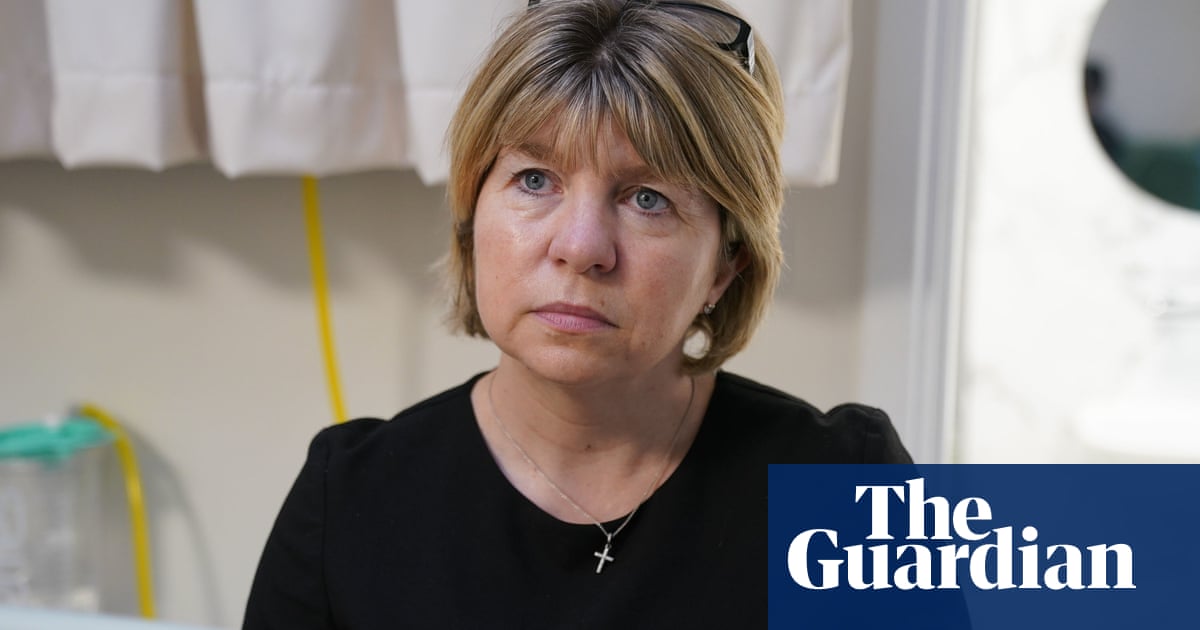Ministers dismiss claims Maria Caulfield pushed ‘15-minute cities’ conspiracy theory

Government ministers have dismissed allegations one of them pushed a conspiracy theory in campaign literature.
Maria Caulfield, a health minister, spread claims about “15-minute cities” – an idea explicitly referenced in a guide on conspiracy theories prepared for MPs last week by the leader of the Commons, Penny Mordaunt, and the shadow leader, Lucy Powell.
On Thursday, Mordaunt sidestepped suggestions she could alert Caulfield, her party colleague, to that fact. And while Caulfield acknowledged she had spread the idea in leaflets, she said she was only reflecting rumours spread among her constituents.
Raising the matter in the Commons on Thursday, Powell said that – in launching the guide together – she and Mordaunt had “agreed that conspiracy theories are a form of radicalisation, and [that] we must all do everything we can to combat them”.
She noted that the 15-minute city theory was prominent in that guide. And she asked Mordaunt whether she shared her disappointment to see her fellow Conservative indulging it in leaflets sent out as part of local election campaigning last year.
“[Caulfield] just last week gave a staunch defence of her actions, showing no contrition for the damage she has caused,” Powell told the Commons. “Will the leader send her a copy of the guide, tell her why she’s made a big mistake and why she should quickly and strongly renounce it?”
Caulfield, the MP for Lewes in East Sussex, has faced calls from the Liberal Democrats to refer herself to the ministerial ethics adviser over the leaflets. Powell, speaking outside the Commons, has said she “should have known better, she should correct her comments and stop sharing damaging claims”.
Responding to her question in the house on Thursday, Caulfield said: “I did write to my constituents over a year ago about a consultation that’s been run by my local council on 15- to 20-minute communities. And I did, in that letter, point to some of the rumours about 15-minute cities because that is something constituents have raised with me. That consultation is still live on the council website – it’s on page 45 of their planning and appraisals document.”
Caulfield’s letter told constituents, in an apparent statement of fact, that her local political opponents wanted to “introduce a road toll system, called 15-minute city … where you will have to pay a congestion charge if you travel by car more than 15 mins from your home”. The council planning document she referred to makes no such claim.
The 15-minute city is an urban planning concept that focuses on placing local amenities within a short walk of people’s homes. It is designed to make urban areas more pleasant places to live. A conspiracy theory has grown up around it that claims it is actually an attempt to restrict people’s freedoms – locking them into areas around their homes and preventing them from travelling freely beyond.
The Conservative party has declined to say whether it recognises the distinction and Mordaunt has previously failed to respond to questions about whether Caulfield’s leaflet met the definition she set out in her guide.
after newsletter promotion
On Thursday, she declined to engage with the substance of Powell’s question. Instead, she sought to draw a link between it and the recent debate on excluding MPs from parliament when they are arrested on suspicion of sexual offences – as well as the statement the speaker, Lindsay Hoyle, made on intimidation and abuse directed at MPs as a result of that debate.
The guide launched jointly by Mordaunt and Powell notes the link between some proponents of the 15-minute city conspiracy theory and antisemitism on both the far right and far left, a fact Powell noted in the Commons.
Caulfield, who said her family was Jewish, took exception to being linked to antisemitism. She told the Commons: “To be linked to antisemitism when my family are actually Jewish in London, and to have had a very, very difficult time over the last few months was devastating.”
Powell clarified that she “did not say, nor imply, that [Caulfield] was either a conspiracy theorist or, indeed, antisemitic. And I do not believe that she is either of those things”. She said she had sought to highlight the dangers of sharing conspiracy theories – however inadvertent that may be.

